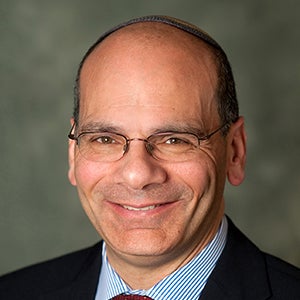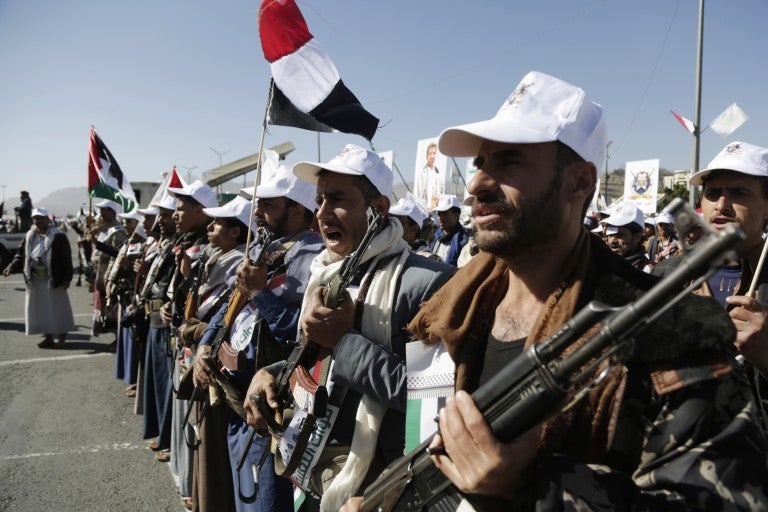August 18, 2015
A very popular Pope Francis is coming to America. He’ll be receiving a lot of justifiable attention, as he does everywhere he goes and every time he delivers his message of inclusiveness.
That attention will come not just from Catholics, but from all kinds of people, from the religiously committed to atheists. And Jews will be listening and watching as well when Francis visits the Northeast, particularly New York City, home to the largest Jewish community outside Israel.
Over the first two millennia of Christian-Jewish relations, Catholic teaching portrayed Jews as guilty of killing Jesus and accursed for rejecting him as messiah. The Church held that God’s covenant with the Jewish people was superseded by the new covenant of Christianity. This teaching of contempt for Judaism naturally fostered hatred and produced anti-Jewish violence over the centuries: inquisitions, ritual-murder accusations, ghettos, expulsions and pogroms.
In the wake of Catholic self-reflection regarding Christian culpability in the Holocaust, initiated by Pope John XXIII (1958-63), the tide began to turn and a revolutionary transformation in Catholic teaching on Jews and Judaism emerged with Nostra Aetate, promulgated by Pope Paul VI (1963-78) on Oct. 28, 1965.
This Catholic document, whose 50th anniversary will be celebrated just one month after Francis’ visit to the United States, reversed anti-Jewish theology and inaugurated a new era in Catholic-Jewish relations.
Historically, popes played a central role in sustaining Christian antipathy toward the Jewish people, but the last half-century has seen the papacy take on a role of leading Catholic outreach to Jews through gestures of reconciliation.
Pope John Paul II (1978-2005) set the example with the first papal visit to a synagogue, pilgrimages to Holocaust sites and diplomatic relations with and a state visit to Israel, all couched in the language of fraternal love and regret for the past.
Pope Benedict XVI (2005-13) affirmed the importance of Catholic-Jewish relations by making the types of visual cues that John Paul had initiated integral to his pontificate as well.
Francis is best known as the first Jesuit, first Latino and first Southern Hemisphere pope, but he is also the first pope to have implemented — before assuming the papacy — the legacy of Nostra Aetate through sustained Jewish relationships in his native Argentina, home to the world’s seventh-largest Jewish community.
There is an unselfconscious ease to Francis’ interaction with Jews, best demonstrated by his celebrated friendship with Rabbi Abraham Skorka, with whom he co-authored “On Heaven and Earth,” a chronicle of their rabbi-priest conversations.
Francis’ numerous audiences with Jewish leaders and his own state visit to Israel have been complemented by uplifting papal pronouncements, including, “Due to our common roots, a Christian cannot be antisemitic,” and “The friendship which has grown between us makes us bitterly and sincerely regret the terrible persecutions which [the Jews] have endured, and continue to endure, especially those that have involved Christians.”
It’s not that Jews agree with Pope Francis and the Church on every social-policy position — quite the contrary. And Pope Francis hasn’t hesitated to adopt some positions that have challenged Jewish core concerns.
In May, the Palestinians’ unilateral pursuit of statehood in lieu of direct negotiations with Israel was, unfortunately, rewarded by the Holy See with an expansion of Vatican-Palestinian relations, a development criticized by Israel and Jewish leaders as a setback to peace.
On an even more sensitive front, Francis has tipped his hand with a strong defense of the debated record of Pope Pius XII (1939-58) before all Vatican archives related to the Holocaust have been opened to scholarly study.
All that duly and properly noted, we are clearly living in a renewed era of Catholic-Jewish relations. When there are disagreements, they are discussed and often resolved among friends, but even when unresolved, the conversation rarely devolves into a contretemps.
With Pope Francis we have entered a new stage — normalization. It’s all very natural, seemingly without premeditation, and so it’s therefore most appropriate that the Nostra Aetate jubilee year is being commemorated and celebrated during the Francis era, characterized by a mature relationship between faiths.
Jewish leaders look forward to participating in Witness for Peace: A Multireligious Gathering with Pope Francis at the 9/11 Memorial and Museum. We will extend to His Holiness the same gracious and warm welcome he has offered our Jewish delegations at the Vatican.
Shalom, Pope Francis. Safe travels. May the relations between our peoples continue to prosper.
Rabbi Noam E. Marans is the American Jewish Committee’s director of interreligious and intergroup relations (ajc.org).



